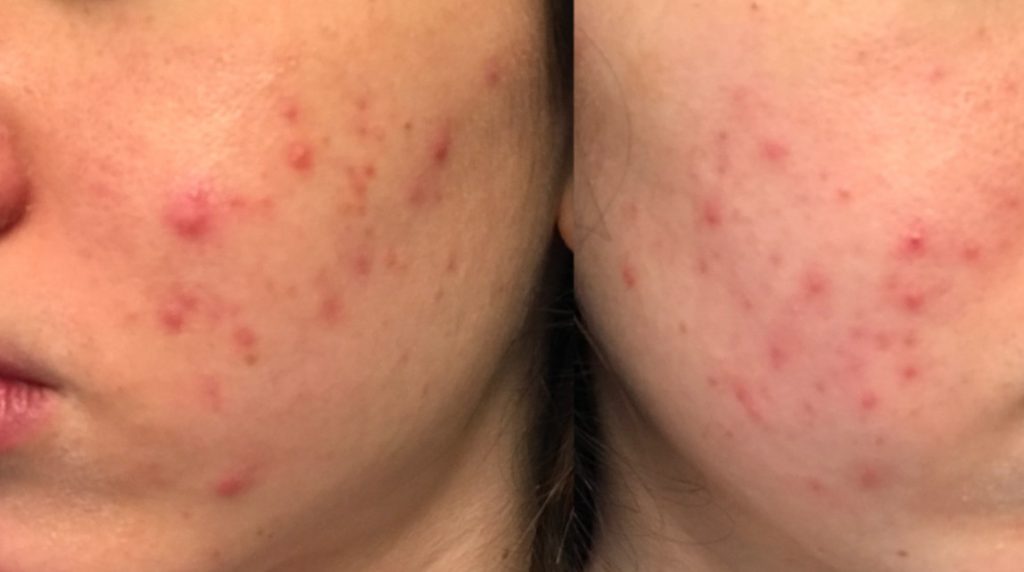vit a for acne
vit a for acne : The main causes of acne are dead skin cells, bacteria, and fat. Acne bacteria can grow in this environment. Vitamin A is a key component of a good, scientifically formulated anti-acne serum that stimulates cell regeneration and proliferation. As a result, a process occurs inside the pores that reduces fat production and clears them. Furthermore, this substance has anti-inflammatory effects on acne and helps to get rid of pimples.
Acne may be caused by vitamin A deficiency, according to experts. Because this vitamin affects the body’s largest organ, the skin, in different ways. Vitamin A inhibits excessive sebum production by the sebaceous glands, one of the main causes of acne. In addition, Vitamin A protects and repairs skin tissue. In addition, vitamin A protects the body against free radicals, which strengthens the immune system and helps eliminate acne-causing bacteria. Therefore, it is essential to get a sufficient amount of vitamin A each day, which is 2310 international units for women and 300 units for men. There are many natural sources of vitamin A, so you can take it 5 times a day. The other parts of the body and the skin will benefit from this.
vit a for acne – You can also use topical ointments or vitamin A capsules to treat acne. How Much Vitamin A Do I Need To Treat Acne? Acne can be treated with 300,000 to 500,000 international units of vitamin A a day. Under no circumstances should a person consume more than 10,000 units of vitamin A per day. A person may be exposed to serious physiological risks such as liver damage and acute neurological disorders. Vitamin A poisoning often results in a large amount of vitamins being stored in the body, causing headaches and nausea. Vitamin A is a fat-soluble vitamin, and excessive amounts are not excreted in the urine since it is not soluble in water. The accumulation of so much vitamin A in the body leads to many other problems. Therefore, you should consult a doctor before taking such a treatment. When you see a doctor, they will recommend that you take 300,000 units of vitamin A for the first two weeks, then reduce it to 100,000 units a day for two months. Also, you can divide this amount into several servings throughout the day.

In order for cells to grow and remain healthy, vitamin A is essential. All cells in the body need vitamin A to function properly.
vit a for acne : The antioxidant properties of vitamin A protect cells from free radical damage. This could slow down the aging of skin cells and keep the skin looking young.
The same process may also reduce the speed at which skin cells fall off, potentially reducing acne and pore clogging.
According to a study in the Journal of the American Academy of Dermatology, isotretinoin, sold under the brand name Accutane, can be used to treat severe acne.
There are several types of retinoids, including isotretinoin. It can also be used to treat moderate acne that is resistant to other treatments.
However, anyone taking retinoid medication will need regular liver testing to reduce the risk of developing liver problems. In the body, vitamin A can build up and become toxic as it binds to fat cells.
Topical application of vitamin A may also help skin cells. Inflammation can be controlled with topical retinoids.
The skin may also become more sensitive to UV rays due to these drugs. People with this sensitivity should be careful when exposing their skin to strong sunlight because it can increase the risk of sunburn.
What does the research tell us?
There is a lot of research supporting the use of topical vitamin A for acne. However, studies on oral vitamin A for acne have been mixed.
In older research, Trusted Source did not find oral vitamin A to be an effective acne treatment, but said it might prevent acne vulgaris from getting worse.
The study, conducted by Trusted Source, also concluded oral vitamin A is effective at treating acne, but it was small and of low quality.
Vitamin A’s efficacy as an acne treatment is most promising as a topical treatment only.
It’s important to get enough vitamin A in your diet, but this isn’t the best way to treat acne. Too much vitamin A is harmful.
vit a for acne : is found in foods
It is important to consume a wide range of foods rich in vitamin A in order to strengthen and protect your skin.
Retinoids are found in the following animal foods:
Beef or sheep liver
Salmon fish
Dairy products such as milk, butter and cheddar cheese
egg
Fish
Fish liver oil
Shrimp
Plant products that contain carotenoids include:
Carrots
Squash
tomato
Bell pepper
sweet potato
Vegetables with green leaves
Fruits; Such as mango, apricot, plum, papaya and cantaloupe
vit a for acne : what is it?
Vitamin A is an essential nutrient for maintaining healthy skin, eyes, and fertility, as well as immune function. Vitamin A comes in two forms: retinoids and carotenoids (proformed vitamin A). The liver converts both types of vitamin A into retinol. The lymphatic system transports vitamin A to the body’s cells or stores it in the liver.
Vitamin A can also be absorbed through the skin. Skin becomes too dry without retinol, which helps produce new skin cells. Research shows that retinol deficiency can lead to follicular hyperkeratosis, in which too much creatine builds up in the hair follicles. Inflammatory pimples appear on the skin as a result of this complication.


